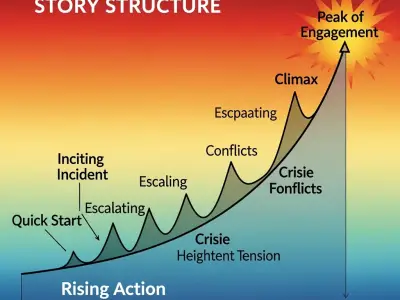Feeling deeply attuned to the emotions of others can be both a remarkable gift and a considerable challenge. This unique ability is often found in those identified as empaths. But what exactly does it mean to be an empath? In this blog, we’ll uncover the essence of being an empath, explore their traits, and offer guidance on how empaths can navigate their world with greater ease and understanding.
Jump to:
What is an Empath?
An empath is someone exceptionally tuned into the emotions of those around them. They often feel the emotions of others as if they were their own, leading to a strong sense of empathy towards others. It's more than just being empathetic; it's about experiencing a deep emotional connection with people.
Emotional empaths feel the emotions of others intensely, often mirroring those feelings themselves. This can range from joy to distress, making them highly sensitive to the emotional atmosphere around them.
The Difference Between Being Empathetic and Being an Empath
Empathy enables you to relate to and understand another's feelings, such as comprehending the grief of losing a pet, even if you haven't experienced it yourself. Being an empath, however, goes beyond just understanding these emotions. An empath experiences the emotions of others as their own, absorbing and internalising them deeply. This means they don't just sympathise with the pain; they feel it as if it were their own emotional experience. It’s an innate, often overwhelming, ability to feel what others are feeling.

10 Traits of an Empath
So, how do you know if you’re an empath? Let's explore 10 key traits that are commonly seen in empaths:
- High Sensitivity
Empaths are often extremely sensitive, not just emotionally but also to the subtleties in their environment. They can pick up on minor changes in mood, tone of voice, and even non-verbal cues that others might miss. This sensitivity also extends to physical stimuli, such as bright lights, loud noises, or even the energy in a room. It's like having an emotional radar that's always on, making them quick to sense and respond to the needs and feelings of others.
- Emotional Receptivity
Empaths have a unique capacity to absorb emotions from those around them. This means they often feel the joy, sadness, anxiety, or anger of others as intensely as if these emotions were their own. This can be overwhelming, especially in situations where negative emotions are strong. The challenge for an empath is learning to recognise which feelings are theirs and which belong to others, as this emotional receptivity can sometimes lead to emotional overload.
- Intuitive Understanding
Beyond just feeling what others feel, empaths often have a deep, intuitive understanding of people’s emotional states. This intuition goes further than empathy; it’s an innate ability to perceive and interpret the emotional needs and hurts of others, often without any verbal communication. This trait allows empaths to connect with others on an emotional level, fostering a sense of understanding and trust.
- Need for Solitude
Due to the constant influx of emotions and stimuli, empaths frequently require periods of solitude. This time alone is essential for them to disconnect from the emotions of others, recharge their emotional batteries, and maintain emotional equilibrium. Solitude for an empath is a necessity for emotional and mental well-being.

- Nurturing Instincts
Many empaths are naturally inclined to nurture and care for others. They often find themselves in roles where they can support, heal, or help others through emotional turmoil. This nurturing is not just limited to people they know; empaths often feel universal compassion and a desire to end suffering wherever they encounter it. However, this instinct to nurture can also lead them to put the needs of others before their own and experience compassion fatigue, which is why self-care is essential for empaths.
- Deep Emotional Connections
Empaths tend to form deep, meaningful connections with people quickly. Their ability to empathise at such a level allows them to create bonds based on genuine understanding and emotional resonance. This can lead to intense and fulfilling relationships, although it also means that empaths can be deeply affected by any imbalance or distress in these relationships.
- Enhanced Intuition
Beyond just understanding emotions, many empaths possess an enhanced level of intuition. This can manifest as a strong gut feeling about people or situations, which often proves to be accurate. Their intuition can seem almost psychic as they pick up on subtleties and nuances that others might miss, giving them insights into people’s true intentions or feelings.
- Compassionate Communicators
Empaths are often excellent at communicating in a compassionate and empathetic manner. They have a knack for finding the right words in emotional situations and can communicate in a way that considers others' feelings. This makes them excellent listeners and advisors, as they can provide comfort and understanding in times of need. It’s for this reason that a lot of empaths are drawn to a career in counselling.
- Affected by Natural Environments
Many empaths are highly sensitive to the natural world. They may feel a strong connection to nature and find peace and rejuvenation in natural settings. This connection can also mean that they are more affected by environmental changes, such as weather patterns or seasonal shifts, sometimes mirroring these changes in their emotional state.
- Creative and Artistic
Empaths often have a strong creative streak. Their deep emotions and intuitive understanding can be a powerful source of inspiration for artistic expression. Whether writing, painting, music, or any other art form, empaths often find a sense of release and understanding through creative endeavours.
Recommended for you!
Best SellersDeveloping and Managing Empathy
Growing and handling empathy is something anyone can do, even if it doesn't come naturally. It starts with active listening, which means paying attention to what others say and feel. This isn't just about hearing their words but also understanding their emotions and where they're coming from.
Being open-minded is also important. This means being willing to see things from other people's points of view, even if they're very different from your own. It's about respecting their experiences and feelings without judging them.
Additionally, practising empathy involves recognising and controlling your own emotions. This helps in responding to others in a more understanding and compassionate way. Taking a moment to think about the best way to support others is key, rather than merely reacting to what they are going through.
By working on these skills, you can become more empathetic. This helps you understand and connect with others and enriches your emotional experiences.
The Pros and Cons of Being an Empath
Being an empath can be a blessing and a challenge. The ability to deeply connect with others can lead to meaningful relationships and a clear understanding of people. However, it can also result in emotional overload and exhaustion if not managed well. Let's explore the pros and cons:
Pros of Being an Empath
- Deep Emotional Connections: Empaths can form deep and meaningful relationships. Their empathy allows for a level of understanding and connection that is rare and fulfilling, leading to strong bonds with others.
- Heightened Intuition: The intuitive nature of empaths often guides them in making insightful decisions, especially in dealing with people. This intuition can be a powerful tool in personal and professional settings.
- Positive Impact on Others: Empaths are naturally nurturing and supportive, making them excellent friends, partners, and caregivers. They often positively impact the lives of those around them, offering understanding and compassion.
- Enhanced Communication Skills: Their ability to understand and relate to others’ emotions makes empaths effective communicators. They are often adept at resolving conflicts and providing comfort in difficult situations.
Cons of Being an Empath
- Emotional Overload: One of the most significant challenges for empaths is managing the intense emotions they absorb from others. This can lead to feelings of overwhelm, anxiety, and emotional exhaustion.
- Difficulty in Setting Boundaries: Empaths often struggle to set healthy emotional boundaries, which can lead to them feeling drained and burdened by others' problems.
- Being Prone to Manipulation: Due to their caring nature, empaths can sometimes become targets for manipulation by those who might take advantage of their empathy and willingness to help.
- Need for Solitude: The overwhelming nature of constant emotional input means empaths often need more alone time than others, which can be misinterpreted by those who don’t understand their need to recharge.
- Environmental Sensitivity: Empaths are often sensitive to their surroundings, which means they can be easily affected by noise, crowds, and the overall energy of their environment. This can limit their comfort in social situations and public spaces.

Navigating Life as an Empath
Navigating life as an empath involves finding a delicate balance and developing a strong self-awareness. The first step in this journey is acknowledging and embracing your empathic nature. Understand that being an empath is a fundamental part of who you are, and embracing it can lead to greater self-awareness and fulfilment.
Setting healthy boundaries is another essential aspect of living as an empath. Understanding your limits and recognising when to step back to protect your emotional well-being is important. This might involve saying no to additional responsibilities, limiting time spent in overwhelming situations, or permitting yourself to take a break when needed.
Prioritising self-care is also important. Engaging in activities that replenish your energy and bring joy is essential for maintaining your emotional health. This could be anything from journaling, practising mindfulness, and spending time in nature, to pursuing a creative hobby. It's all about finding what works for you and making it a regular part of your life.
Connecting with like-minded individuals can offer immense support. Finding a community or even a few individuals who understand and share your empathic traits can be incredibly beneficial. Such connections offer a sense of belonging, mutual support, and understanding, making the empath's journey less isolating.
Lastly, it's important to leverage your empathy. While protecting your emotional health is key, remember that your empathic nature is also a gift. It allows you to connect with others deeply, understand them profoundly, and offer meaningful support. This ability can be a powerful tool in helping others and creating fulfilling relationships and experiences for yourself.
By following these strategies, empaths can navigate their lives more effectively, making the most of their unique abilities while ensuring their own well-being.
Empath Awareness Diploma Course at Centre of Excellence
If you want to explore the depths of your empathic abilities, sign up for our Empath Awareness Diploma Course. This course is tailored to help you understand and harness your empathic traits, offering practical advice and a supportive community. It’s an opportunity to transform your empathic abilities into a powerful asset.
As part of our commitment to empowering lives through transformative education, we’re offering this course at a discounted price of £29 for a limited time, saving you over £100!












